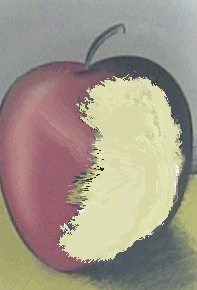|
| |
 |
| General
guide to reading and class discussion: |

|
| 1) define
the terms, concepts, and questions used by the author
2) obtain agreement as to a general statement of the author's intent
3) identify the theories, subtopics or questions we will discuss
4) allocate time for discussion in each point in 3
5) the actual discussion of the themes and topics
6) the integration of the new material with that previously known
7) the application of the new material |
| Presentations
by students in class will be graded according to the following criteria: |

|
 |
Quality of thought (depth of research, knowledge of topic). |
 |
Completeness (are relevant aspects of topic included? Are they
complete? relevant?
accurate?).
|
 | Quality of presentation (organization, time management, logical
sequence).
|
 |
Quality of discussion (good questions for discussion, connections to
course and/or classroom,
leadership in discussion).
|
|
| |
|
| Criteria
for Evaluation |
|
| (A)
|
Reserved for those students whose work is excellent. Their work will
contain an element of originality, creativity or thoroughness. It will
be well organized and expressed, and will reflect a particularly clear
command of techniques and principles, incisive judgements, sound critical
evaluations, etc.
|
| (B) |
Assigned for proof of good competent work. This grade indicates that
a student has mastered the course material and can manipulate it, can
write clear prose, can demonstrate an ability to critically evaluate and
synthesize material, discriminate relevant issues and apply the course
material to relevant situations or problems.
|
| (C)
|
Assigned because a student does not meet one or more of the above criteria.
Even though the student may be conscientious, he/she has not demonstrated
a capacity for graduate work in this course. A lack of capacity
may include any one or more of a number of characteristics such as
an inability to write clearly, or to grasp or research a topic adequately,
or to synthesize material, or to make basic judgements about relevance,
etc.
|
| (F)
|
Glaring inaccuracy and confusion, little or no grasp of techniques and
principles, trivial and irrelevant treatment of topics. In general, a
failure to demonstrate the minimal knowledge and skills for effective
work in the discipline. |
|
| |
|
| |
|